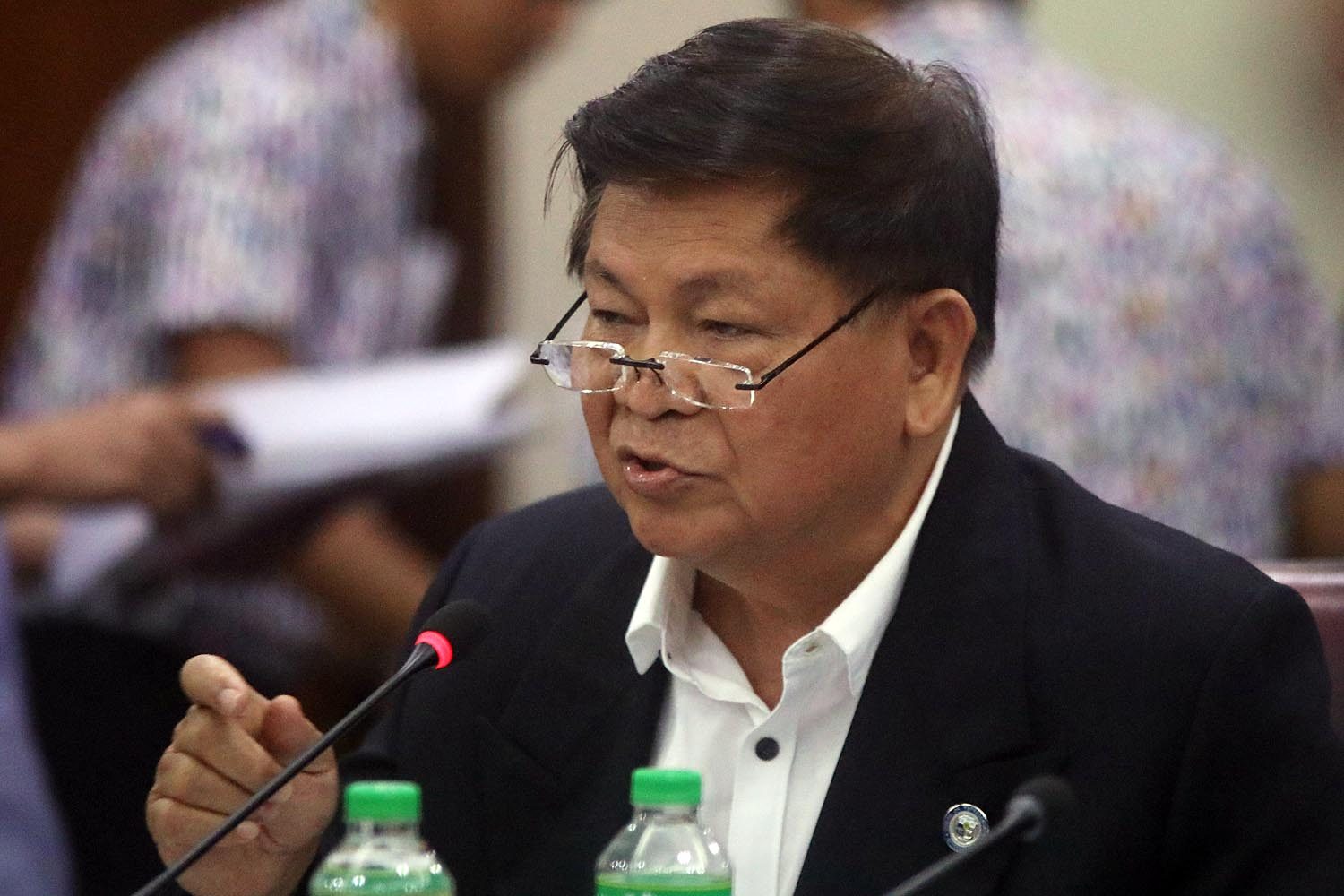SUMMARY
This is AI generated summarization, which may have errors. For context, always refer to the full article.

MANILA, Philippines – Are extraordinary protective writs still effective as President Rodrigo Duterte wages his wars against criminality?
Leyte 3rd District Representative Vicente Veloso, an administration ally, may find that they are not, as he fails to convince the Court of Appeals (CA) to act on his petition for writ of habeas data to strike his name off the list of Duterte’s narco-politicians.
In a decision promulgated on Tuesday, November 5, the CA’s Special Eighth Division refused to act on Veloso’s petition, saying that a separate complaint filed against him before the Office of the Ombudsman related to the narcolist accusations bar the court from granting the privileges of the writ.
A writ of habeas data, if privileges are granted, would compel the respondent – in this case, the Duterte administration – to delete or destroy damaging information.
“The pendency of an administrative case against the petitioner with the Ombudsman bars direct intervention by the Court,” said the decision penned by CA Associate Justice Apolinario Bruselas, with concurrences from associate justices Germano Francisco Legaspi and Ruben Reynaldo Roxas.
The CA’s basis was Section 22 of the Rule on the Writ of Habeas Data, which says that “when a criminal action has been commenced, no separate petition for the writ shall be filed.”
Law professor Ted Te said Section 22 actually “dilutes” the effectivity of the remedies.
“That’s my main beef with both amparo and habeas data – that provision that moots the independent remedies when a case is already filed because the trial court then acquires jurisdiction. It dilutes the effectivity of the remedies and renders them ordinary rather than extraordinary, which was what they were contemplated to be,” Te said.
A writ of amparo seeks a protection order from the court. It is sometimes similar to a restraining order in other countries.
‘Dearth of case law’
Besides, Te said the appreciation of Section 22 in Veloso’s case was “strained.”
Te said that Section 22 only talks of a situation where the case was already filed in court, and not a mere complaint filed before prosecutors like the Ombudsman.
“I think CA’s interpretation is a bit strained because Section 22 contemplates that a case must have been filed already; a pending case before the Ombudsman may still be dismissed and so the right to privacy would not be vindicated,” said Te.
Even the CA admitted that there is a “dearth of case law” to refer to when confronted with petitions of writs of habeas data, habeas corpus, and amparo.
“In this petition, the Court is confronted with issues which reflect the dearth of case law pertaining to the writ of habeas data in our jurisdiction, in contrast to other prerogative writs acknowledged by our laws, e.g., certiorari, habeas corpus, amparo,” said the CA.
In ruling this way, the CA used the 2008 Supreme Court case Tapuz vs Del Rosario, where the Supreme Court said it would not intervene in the case through a petition for a writ of amparo when there is already an ongoing “civil process.”
The 2008 case, however, dealt with a petition for writ of amparo, while Veloso’s petition was for writ of habeas data.
But the CA said the Rules of Amparo and Habeas Data are similarly-worded.
“Given the glaring similarity in the wording of Section 22 of the Rule on the Writ of Amparo and Section 22 of the Rule on the Writ of Habeas Data, and taking into consideration the analogous nature of the relief and remedy that may be availed under both rules, the Court is of the view that the pronouncements in Tapuz and Reyes equally apply to the Rule on the Writ of Habeas Data,” said the CA.
Law professor Tony La Viña said “the CA should have ruled on the petition because this is a habeas data case where a constitutional right – security of one’s person – is being invoked.”
“That right has been violated – or not violated. It has nothing to do with the pending case,” said La Viña.
Ineffective
The CA previously denied petitions for writs of amparo and habeas data of activists who accused the military and the Duterte government of red-tagging them, or linking them to communist rebels.
In the case of the petition for writ of amparo of the National Union of Peoples’ Lawyers (NUPL), the CA dismissed the petition, saying there was no proof that the harassment of its members were perpetrated by the military.
At one point in the trial, the CA refused to issue the temporary protection order (TPO), saying the Supreme Court already issued them one. The Supreme Court merely granted the writ, which provided only for a progression of trial at the CA and compelled the army to answer the accusation.
“It reinforces the studied view that domestic remedies for redress of rights violations are, by and large, ineffective and unavailing, especially under the present political situation,” NUPL president Edre Olalia said then.
The last time that a human rights lawyer was granted the privileges of the writ of amparo was in 2015, when the NUPL’s Catherine Salucon won her petition. Four years later, no one has been identified and no one has been charged for the harassment she experienced. – Rappler.com
Add a comment
How does this make you feel?
There are no comments yet. Add your comment to start the conversation.